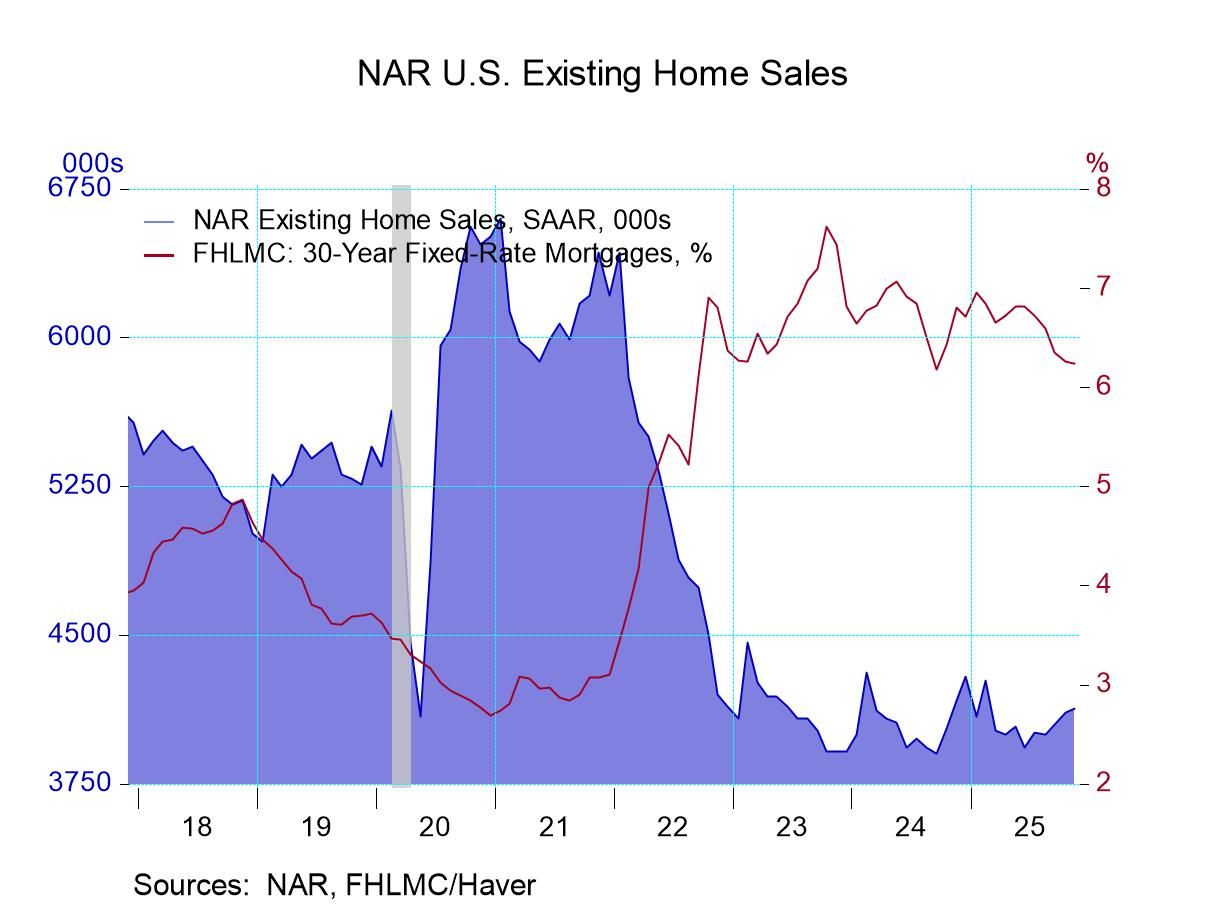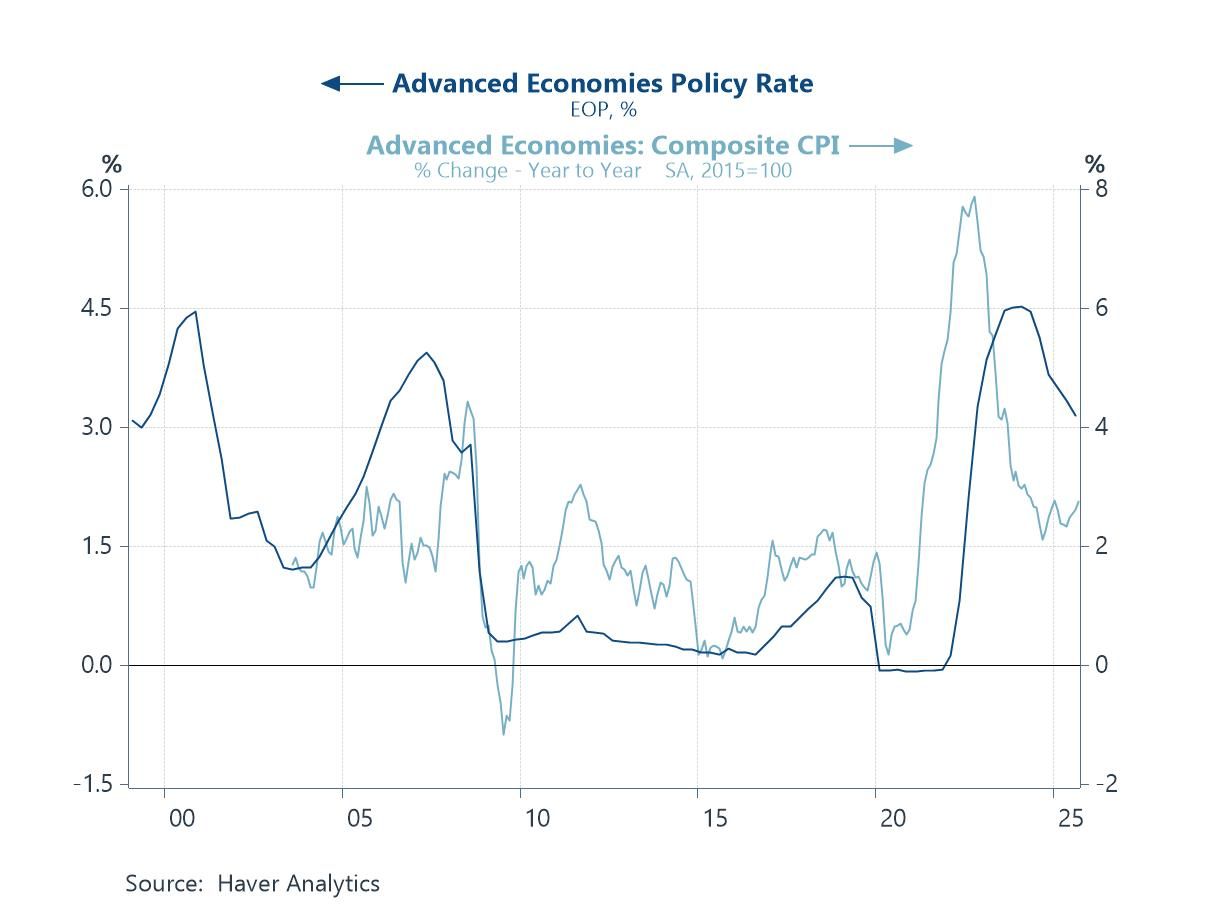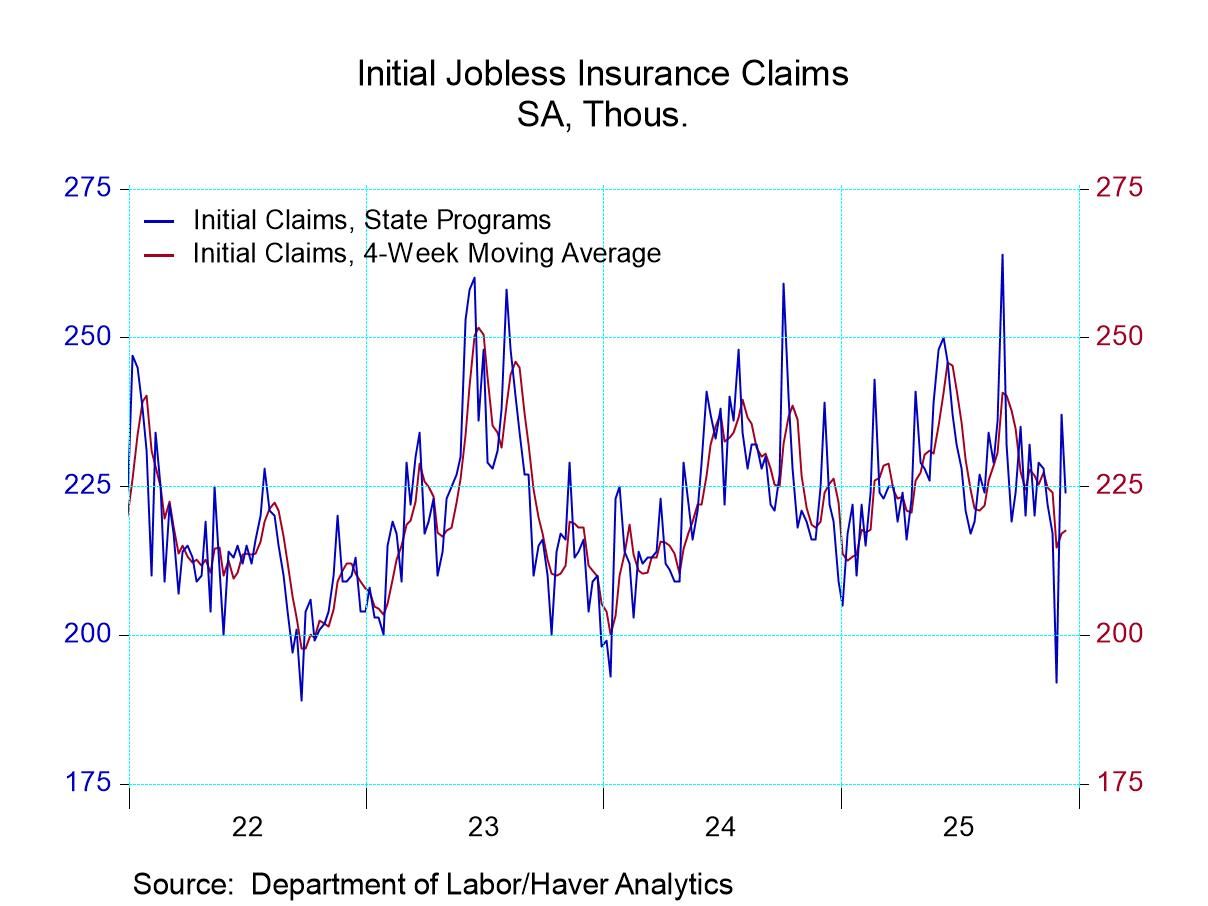 Global| Sep 06 2006
Global| Sep 06 20062Q U.S. Productivity Revised Up, Compensation Surged
by:Tom Moeller
|in:Economy in Brief
Summary
Non-farm labor productivity growth last quarter was revised upward to 1.6%, about as expected. The gain remained, however, quite a bit slower than the 2.7% average quarterly growth during the prior four quarters. Compensation growth [...]
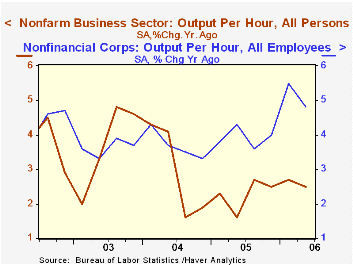
Non-farm labor productivity growth last quarter was revised upward to 1.6%, about as expected. The gain remained, however, quite a bit slower than the 2.7% average quarterly growth during the prior four quarters.
Compensation growth also was revised up, but to a much greater degree. The revised 6.6% 2Q increase compared to a preliminary report of a 5.4% gain and the revised 13.7% surge during 1Q was more than double the initial report.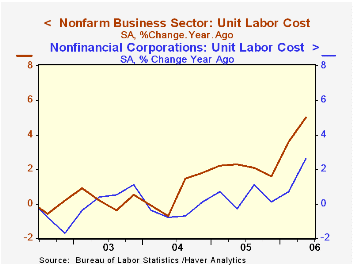
Unit labor costs, therefore, surged. The revised 2Q increase of 4.9% was up from the initial report of a 4.2% gain and the 9.0% increase now estimated for 1Q compares to a 2.5% increase reported last month.
Factory sector productivity growth was revised down slightly to 2.6% (3.7% y/y) after a 3.7% 1Q increase. Factory sector compensation per hour, however, was revised up to a 4.0% (6.1% y/y) gain from 1.7%.
The previous sense that unit labor costs in the factory sector were under control, therefore, was revised away. Costs rose 1.3% (2.4% y/y) after a 9.3% 1Q rise that was revised from 1.4%.
In the nonfinancial corporate sector 2Q productivity, reported for the first time, grew 2.2% (4.8% y/y) after an 11.1% surge during 1Q. Unit labor costs grew 4.2% (2.6% y/y), the most since 3Q '05.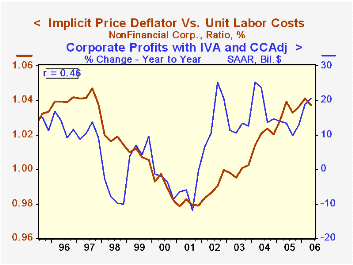
Do Inflation Targeters Outperform Non-targeters? from the Federal Reserve Bank of St. Louis is available here.
| Non-farm Business Sector (SAAR) | 2Q' 06 (Revised) | 1Q '06 | Y/Y | 2005 | 2004 | 2003 |
|---|---|---|---|---|---|---|
| Output per Hour | 1.6% | 4.3% | 2.5% | 2.3% | 3.0% | 3.7% |
| Compensation per Hour | 6.6% | 13.7% | 7.7% | 4.4% | 3.6% | 4.0% |
| Unit Labor Costs | 4.9% | 9.0% | 5.0% | 2.0% | 0.7% | 0.3% |
Tom Moeller
AuthorMore in Author Profile »Prior to joining Haver Analytics in 2000, Mr. Moeller worked as the Economist at Chancellor Capital Management from 1985 to 1999. There, he developed comprehensive economic forecasts and interpreted economic data for equity and fixed income portfolio managers. Also at Chancellor, Mr. Moeller worked as an equity analyst and was responsible for researching and rating companies in the economically sensitive automobile and housing industries for investment in Chancellor’s equity portfolio. Prior to joining Chancellor, Mr. Moeller was an Economist at Citibank from 1979 to 1984. He also analyzed pricing behavior in the metals industry for the Council on Wage and Price Stability in Washington, D.C. In 1999, Mr. Moeller received the award for most accurate forecast from the Forecasters' Club of New York. From 1990 to 1992 he was President of the New York Association for Business Economists. Mr. Moeller earned an M.B.A. in Finance from Fordham University, where he graduated in 1987. He holds a Bachelor of Arts in Economics from George Washington University.



